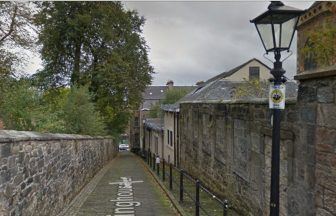Graduates from the poorest parts of Scotland earn an average of 11% less than their more affluent counterparts five years after finishing their studies, figures show.
Statistics published by the Scottish Government on the earnings of university graduates show those from the most affluent backgrounds earn a median of £31,000, while those from the most impoverished areas pocket £27,400.
The figures looked at graduates from the 2014-15 academic year and their earnings in the 2020-21 tax year, showing a median earning of £29,900 per year for all students.
When broken down by the sex of the graduates, the figures also lay bare a bigger gap between men and women from more affluent backgrounds.
Median earnings for male graduates from the richest areas are £32,100, compared to £30,300 for women, while the gap is just £400 for those from the most deprived areas.
The difference in median earnings between those with a disability and without is £2,200, the figures also show.
Pam Duncan-Glancy, the Scottish Labour education spokeswoman, said the statistics show the “level of ingrained inequality that thousands of young people in Scotland face”.
She added: “It is clear to see that people from the most deprived backgrounds, women and disabled people are being held back and are earning less after they graduate than others.
“This is deeply unfair and it doesn’t have to be that way.
“We must do everything we can to ensure that there is a level playing field for all – and the report out today shows that there is still so much work to be done.”
The statistics were released as UK Labour leader Sir Keir Starmer announced his party’s plans to boost education for poorer children at an event interrupted by climate protesters.
Duncan-Glancy added: “That’s why today Keir Starmer outlined Labour’s mission to ensure that no child will be held back because of their background through measures such as closing tax loopholes for private schools, tackling gender, age and disability pay gaps, and supporting public services. Labour will improve life chances for everyone.
“Today I call on the SNP’s Education Secretary to work with Scottish Labour to make sure that every student in Scotland – regardless of their background and circumstances – is given a fair chance to succeed.”
A spokesperson for Scotland’s minister for Higher and Further Education, Graeme Day MSP, responded: “The Scottish Government is committed to addressing inequalities in the labour market. Encouragingly, these figures highlight a reduction in the earnings gap between male and female graduates and between disabled graduates and non-disabled graduates.
“Our commitment to free university tuition means that a university education is based on the ability to learn and not the ability to pay – and sees students in Scotland with by far the lowest levels of debt in the UK.
“The average debt for students in England is now £44,940 which is almost three times the level of Scotland – which is why Keir Starmer’s U-turn on tuition fees is so damaging. Saddling students with tuition fee debt is not the way to tackle inequality.
“Coupled with today’s confirmation that scrapping the two child benefit cap is not Labour policy, any suggestion that Labour are focused on tackling inequality for young people will ring hollow.”
Follow STV News on WhatsApp
Scan the QR code on your mobile device for all the latest news from around the country


 PA Media
PA Media
























